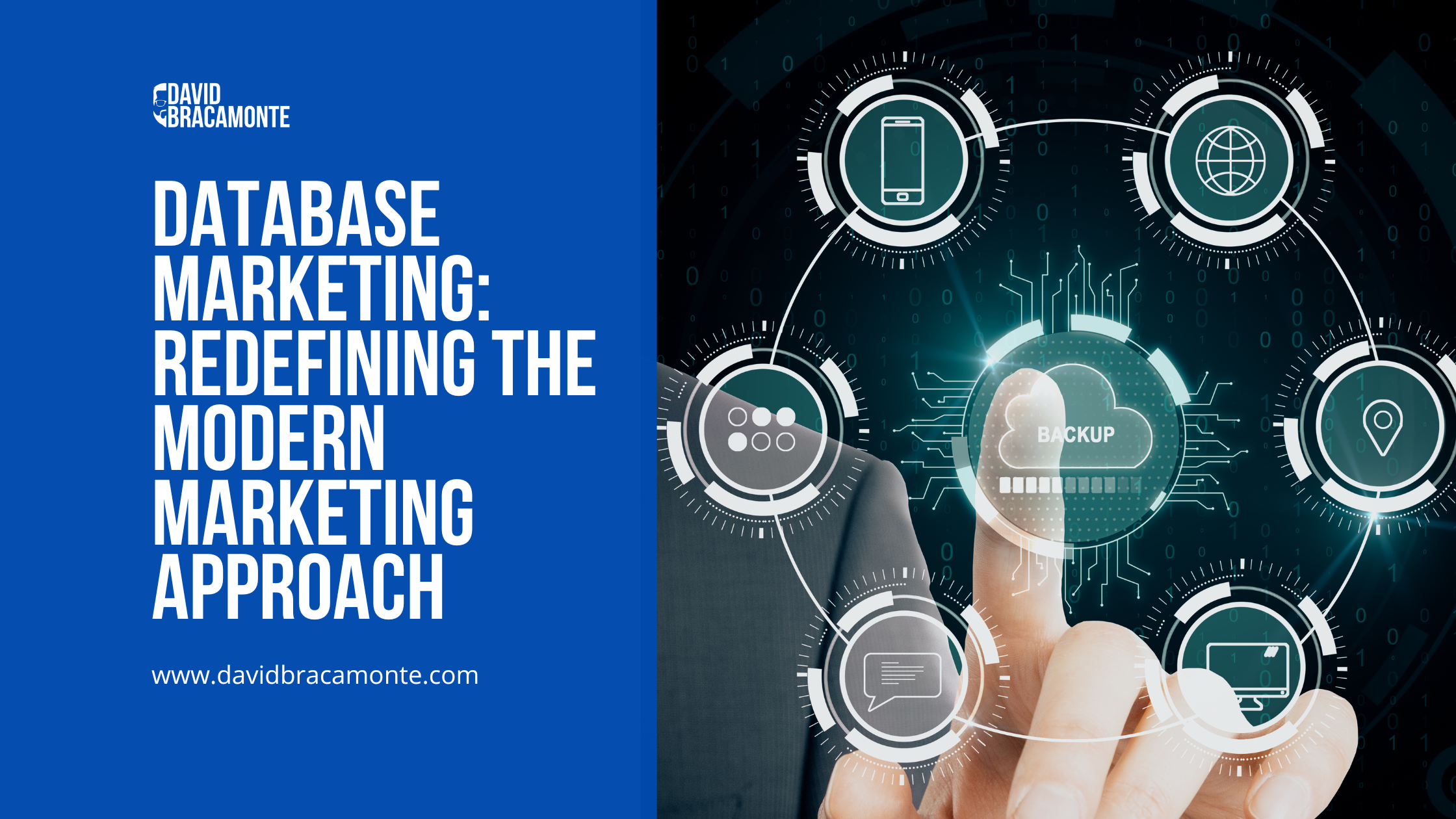Database marketing, a concept revolutionizing the modern approach to advertising and customer engagement, is increasingly becoming a cornerstone of effective marketing strategies. Unlike traditional marketing, which often relies on broad strategies to appeal to a general audience, database marketing offers a more targeted, personalized approach.
Definition and Application
Database marketing involves collecting, analyzing, and using customer data to drive more effective marketing strategies. Businesses can create highly targeted marketing campaigns by gathering detailed information about customers’ preferences, behaviors, and purchasing history. This approach not only enhances customer experience but also increases the efficiency of marketing efforts.
Statistics and Trends
The evolution of marketing strategies has been significantly influenced by advancements in data analysis and customer behavior tracking. With abundant data available, database marketing emerges as a critical tool for businesses seeking to refine their marketing efforts and drive substantial growth.
Recent trends and statistics underscore the pervasiveness and rising significance of database marketing. Enterprises that collect and effectively analyze customer behavior data are achieving remarkable results. A report by Forbes highlights this shift, revealing that companies adept at leveraging customer behavior data outshine their competitors by a staggering 85% in sales growth. Such a lead underscores the competitive advantage that data-informed marketing strategies offer.
Taking these findings further, renowned consulting firm McKinsey & Company conducted a study that sheds light on the economic impact of data-centric marketing approaches. The results point to a staggering five to eight times return on investment (ROI) on marketing spend. This indicates that investing in database marketing is not merely a cost but a catalyst for exponential financial returns.
The implications of these studies are manifold. For one, they underline the necessity of integrating sophisticated data analysis tools and technologies that enable businesses to unearth valuable insights from their customer data. By understanding consumer trends, preferences, spending patterns, and feedback, businesses can tailor their marketing campaigns to be highly targeted and effective.
Moreover, these triumphs in database marketing encourage a shift from traditional marketing strategies that are often broad and unfocused to more nuanced and personalized approaches. By employing data to make informed decisions, companies can craft messages that resonate personally with individual customers, leading to higher engagement and conversion rates.
It’s evident that database marketing is not just a fleeting trend but a fundamental aspect of a sustainable business model in the digital age. The data doesn’t lie—it’s a powerful narrative telling us that businesses must adopt data-driven marketing as a cornerstone of their growth strategies to remain competitive and prosperous. Thus, the proficient use of customer data stands out as a clear differentiator amongst peers in the business landscape, propelling companies toward success.
Beyond the Basics: Advanced Applications
Most blogs discuss the basics of database marketing, but there’s more to it. Advanced applications include predictive analytics, where data predicts future customer behaviors and preferences. For instance, Amazon’s recommendation system, which uses customer data to predict and suggest products, has been a game-changer in the e-commerce sector. This personalized approach has been reported to account for 35% of Amazon’s sales, as
highlighted by Harvard Business Review.
Unique Aspects Often Overlooked
- Integration with Other Marketing Forms: Database marketing is not a standalone tool. It often works best when integrated with other marketing forms, such as content marketing or social media marketing. For instance, using customer data to tailor social media ads can significantly increase their effectiveness.
- Ethical Considerations and Privacy Concerns: With great power comes great responsibility. Database marketing raises important questions about customer privacy and data security. The General Data Protection Regulation (GDPR) in Europe and similar laws in other regions have set new standards for customer data usage, making compliance a crucial aspect of database marketing.
- The Role of Artificial Intelligence (AI): AI plays a significant role in modern database marketing, enabling the analysis of large datasets to uncover patterns and insights that would be impossible for humans to detect. This technology is advancing rapidly, offering new opportunities for personalized marketing strategies.
Database marketing represents a significant shift from traditional marketing approaches, focusing on personalized, data-driven strategies. By understanding customer needs and behaviors, businesses can craft more effective marketing campaigns, leading to better customer engagement and increased sales. As technology continues to evolve, so will the capabilities and sophistication of database marketing strategies, making it an essential tool for any marketer looking to stay ahead in the digital age.
